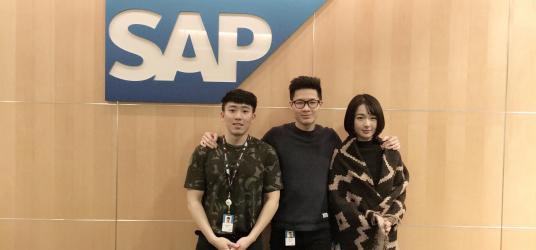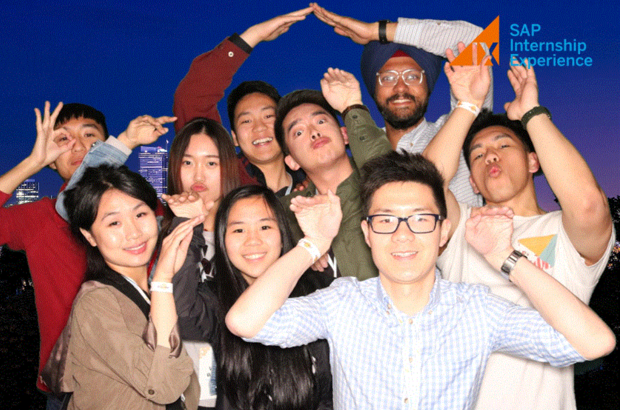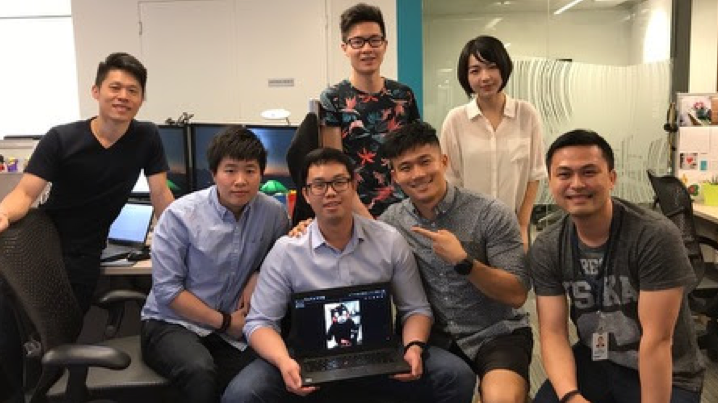
For my first and second co-op work terms, I was fortunate to work at SAP (Systems Applications, Products) as a Technical Operations Analyst. While I was nervous about applying to this role as it was listed under Faculty of Applied Sciences postings - whereas I am studying Management Information Systems at the Beedie School of Business - it was quite possibly the best decision I've made in my undergraduate career. The eight months passed by quickly, and the knowledge and skills I acquired will undoubtably contribute to my future endeavours.
What is SAP?
SAP is a market-leading software company specializing in enterprise application software, serving over 365,000 customers in more than 180 countries. Note: customer figures are in terms of companies, not users!
The Vancouver office is one of 20 ‘SAP Labs’ locations worldwide, which are Research & Development centres to develop and improve SAP Core products, driving innovation across the organization. SAP, while primarily known for developing and deploying on-premise software including massive Enterprise Resource Planning (ERP) systems, has now focused investments and efforts into developing cloud software to meet this growing trend. SAP Vancouver focuses primarily on the development of two cloud products – SAP JAM (collaboration tool), and SAP Analytics Cloud (analytics software).
Working at SAP
For me, SAP was always that 'dream technology company' where I wouldn’t have even imagined working - given my non-technical background. As SAP only hires a handful of interns with a business background, landing a spot is especially competitive for business majors. To get an idea of just how competitive - out of 150 interns at SAP's Vancouver office, only twenty are business students.
As a software company, SAP hires for plenty of software developement and other technical roles. However, I firmly believe that a strong business acumen and understanding of the organization and its priorities, makes a huge difference when competing for a position. Technical skills can be taught but displaying passion through knowledge of the industry and the organization's mission can really set you apart from others.
As part of the SAP Analytics Core Operations Office (COO) team, I quickly realized my work impacted SAP both on a office-wide and global scale. Our team supports the development areas (approximately sixty teams across the globe) by creating KPI reports, performing program delivery management (i.e. Compliance), maintaining databases and systems, providing onboarding support, and redefining processes.
As a co-op student, I worked on a multitude of projects and initiatives including global systems hardware forecasts, dashboard implementations, process mapping and improvement, defect triaging, data analysis, and much more. The most difficult aspect of the learning process involved understanding the complexity of software development, and how my role played a part in the entire process. While I quickly learned the mechanics of most tasks, understanding the business impact or the “ripple effect” of my work and projects on other teams was difficult to comprehend initially. Keeping an open mind and asking plenty of questions are things that I found helpful. Additionally, I spent time drawing out workflows and processes to better understand the complexity of my projects.
My position was also part of the new internship program in the Vancouver office called iXp (Internship Experience Project). This initiative had already been operating for several years in ten locations globally, but the Canadian iXp rollout had just started, making us the “guinea pigs” of the project.

However, thanks to this program, I had a number of great experiences including a three-day, all-inclusive iXp trip to Seattle (where I met hundreds of other iXp interns from the U.S), attended personal development workshops, and got lots of FREE SWAG!
The iXp Program allowed me to develop lasting friendships with my peers, and I felt like more than just a “number” to the company. With the iXp program gaining traction across SAP globally, I strongly believe that the value-added contributions from interns will add to the overall internship experience.
Hardware Forecasts
One of the most significant and impactful projects that got a lot of visibility with key stakeholders was the hardware forecast process. This complex and challenging project was my favorite to work on as it pushed my understanding of how a cloud company operates. Given SAP currently runs many of its cloud products in its own data centres (rather than on Google Cloud Platform or Amazon Web Services), there is a need to forecast monthly system capacity requirements necessary to support the growing number of potential customers that will be using SAP Analytics Cloud. The objective is to maximize capacity allocation, as excess or under-utilization of system capacity means additional and significant expenses incurred by SAP. The forecast capacity requirements are assessed per region level, from data centres in North America to locations in Europe and China.
Through this engagement, I consolidated and analyzed multiple data sources by using Excel formulas, filters, and pivot tables to drill-down into data to understand key patterns and trends. I will admit, I had to utilize additional online learning resources and ask questions to build up my Excel proficiency for this project. As the forecasting process is continually refined to adapt to changing business situations, this meant every forecast I worked on was different from the previous month, providing me with new challenges and considerations. This is where I spent a lot of time asking my manager about the software industry; industry trends, assumptions, technology, and sales processes to help me understand the context behind this project. This even piqued my interest in a potential career in technical sales!
Operations Dashboards
Another key area of my work term was developing operations dashboards to support KPI reporting for management. I used two key software products: SAP Analytics Cloud and JIRA. Some of the dashboards I created on JIRA tracked bugs, work planning (user stories and epics), and development in progress (backlog items). With SAP Analytics Cloud, it was especially nice to utilize an in-house product to support reporting needs. Another intern on my team and I created a universal KPI dashboard that allows new development teams to onboard and integrate KPI reporting more quickly – “Quick Start Dashboard”. This dashboard has received positive feedback from various stakeholders and will continue to be used by new development teams to ramp up quicker moving forward.

Given the large industry trend towards shifting Business Intelligence and reporting from technical users to business users, I found the task of creating dashboards to be extremely valuable. While I am not coding in these projects, creating data visualizations that are interpreted by managers to drive business decisions is a great skill that I have gained. This is not something that is taught in school, and arguably one of the most valuable skills I have gained from working at SAP. I am now self-teaching myself other Business Intelligence tools in the market.
Learning Outcomes
As I had never worked in a software company before, there was a lot of jargon and acronyms that were either industry or SAP-specific terms. Some examples include “canary”, “ACV”, “KT”, “gold plating”. Fortunately, I had access to a wiki that contained numerous definitions of acronyms, and I also had an unofficial “buddy” who helped me with knowledge transfer (that’s what KT means!) information and acted as a resource pool. I can confidently say that I now have a deeper grasp of software development processes and cloud technologies that I would never have acquired in my Management Information Systems' courses.
The knowledge I obtained did not stay limited to software development. My team was amazing in that if I had any career-related question, they put forward their best response, and if needed, sought out additional resources to help me. I was always challenged to look beyond my internship to see what I want to accomplish or do when I graduate. I received a plethora of helpful responses to the questions I asked regarding future career paths, investment advice, and salary negotiation tactics when I secured a full-time job offer.
In terms of technical skills, I had wide exposure to a multitude of software and gained skills in JIRA, SAP Analytics Cloud, SAP HANA (in-memory database), SAP JAM, Excel VBA, MS Projects, and R Studio. I enhanced my Excel and SQL skills, and learned about reporting functions through an analytics software that is gaining traction in the marketplace.
Concluding Reflections
My co-op term at SAP could not have turned out better. It was a great mix of learning technical skills, becoming more familiar with a fast-moving industry, and meeting many great people (thanks to the COO team and fellow interns with whom I have developed strong friendships). The work was diverse, engaging, and I was given the freedom to manage my own time and projects. Asking questions helped me understand the underlying business impact and processes. I encourage everyone with any job to ask many questions and understand the “why” (business impact) more than the granular mechanics of a task. As a business major, this is significantly more important. I greatly appreciate the learning and mentorship I have obtained at SAP and look forward to applying my knowledge and skills towards my next role in consulting.
I highly recommend students to complete an internship at SAP. The connections, skills, and knowledge base that you will obtain is invaluable for any career path. Not only will you develop professionally, but you will also have a lot of fun!
Beyond the Blog
- Interested in learning more about opportunities like Kevin's? Visit the Beedie Business Co-op homepage.















